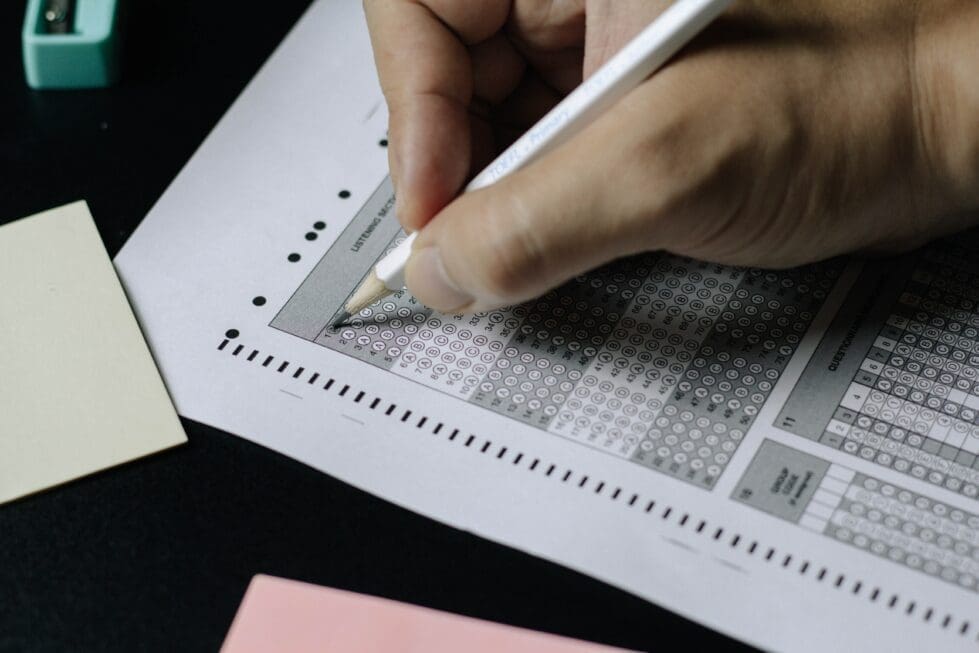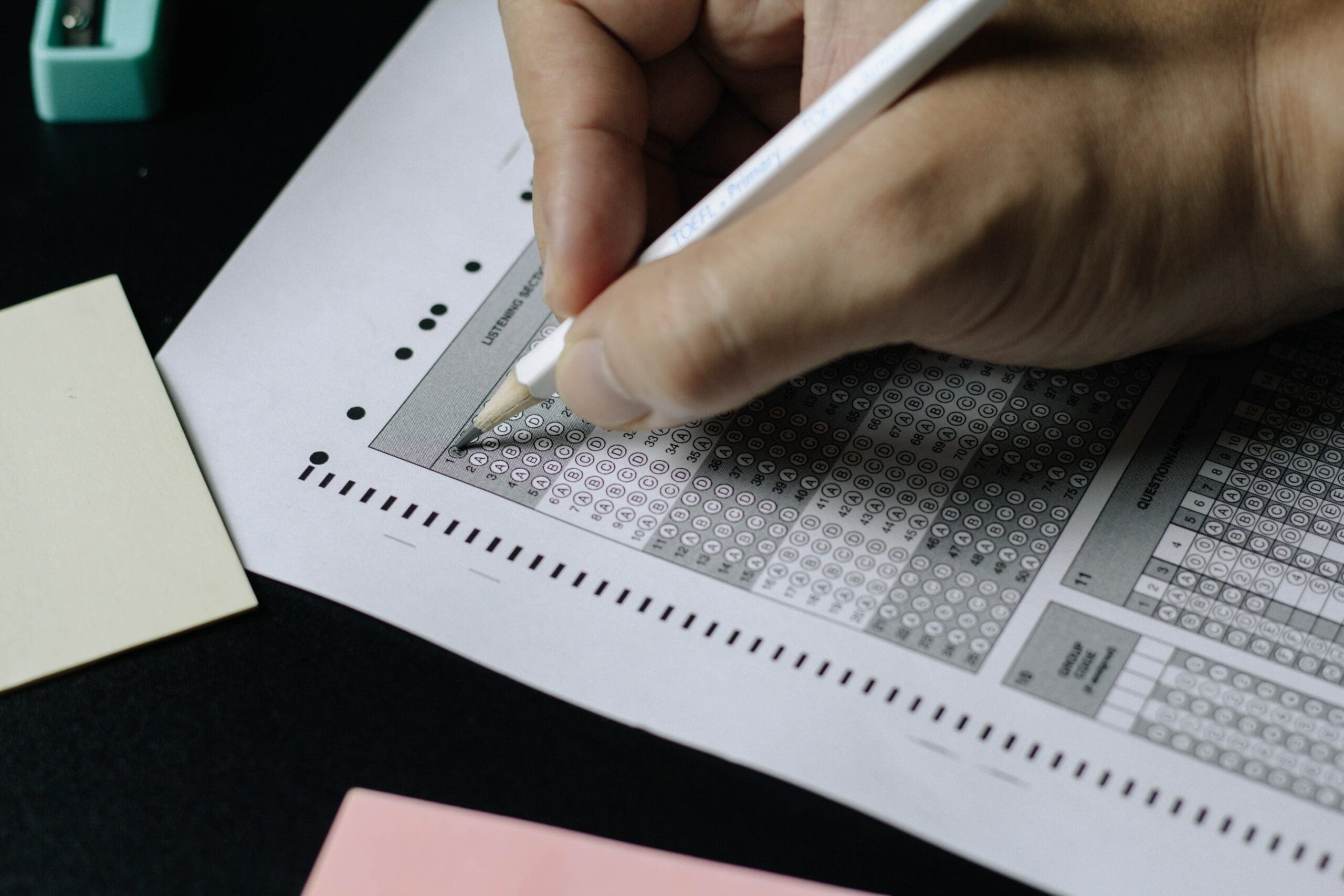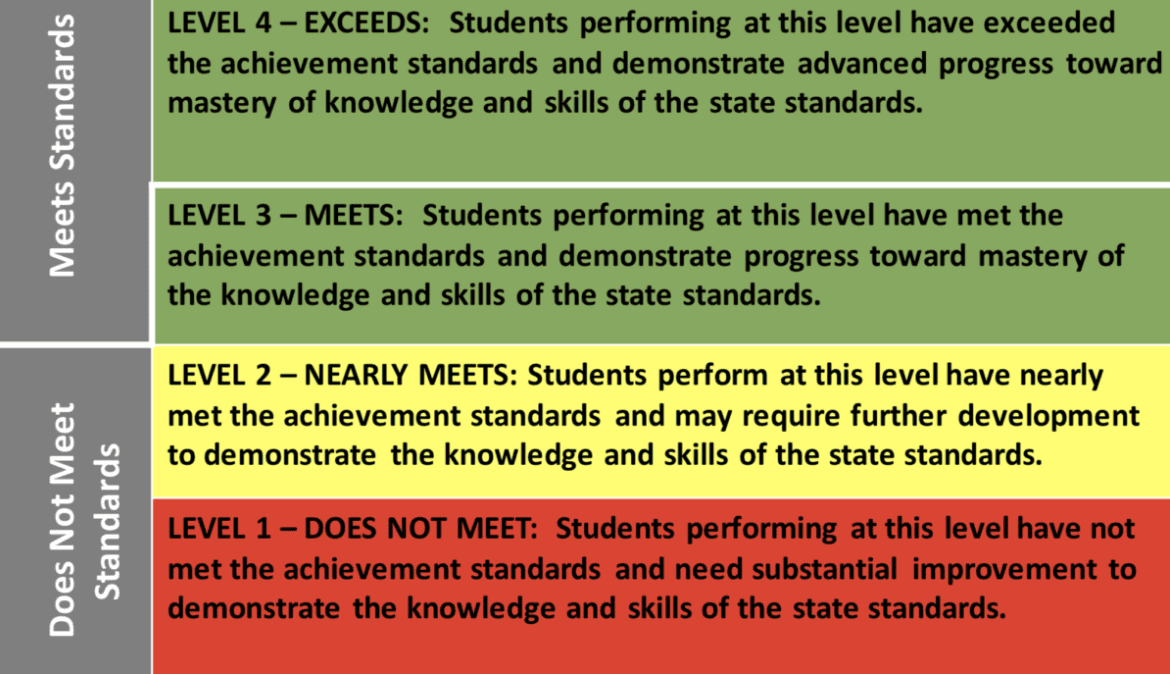There was little cheering news Tuesday when Delaware released its 2023 state assessment results.
The numbers are still grim, with the majority of students across the board failing to reach proficiency in math and reading.
“I can’t imagine anyone looking at these test results and saying they are good enough,” said Julia Keleher, the new executive director of First State Educate, a Delaware education advocacy group. “Education is about more than test scores but these scores present a troubling picture that is inconsistent with our aspirations for Delaware’s young people.”
In English language arts, 40% of students in grades three through eight scored at or above their grade’s proficiency level, a decrease of 2% from last year.
Scores among those grades in math increased 2% from last year, with a rise to 32% from 30% of students scoring proficient.
Rep. Ruth Briggs King, R-Georgetown and a member of the House Education Committee, said the test results are very sad.
“They try to spin the report but fail to highlight the dismal performance,” she said. “Chronic absence from students and faculty worsen the situation.”
Officials from the Department of Education acknowledged Tuesday that the scores are not where they need to be.
“We’re still looking to make significant improvements in those scores,” said Michael Saylor, director of educator excellence at the department. “We’re in no way content with the current scores.”
The data for those grade levels is based on the state-administered Smarter Balanced Assessment, an end-of-the-year summative test that measures the abilities of students in grades three through eight in math and reading.
The scores have four achievement levels: 1 means the student does not meet standards, 2 indicates a student nearly meets standards, 3 means the student meets standards and 4 means the student “exceeds standards.”
“Delaware educators are dedicated, passionate professionals who work hard, but the results signal the need for change,” Keleher said. “If we keep doing what we’ve always done, we won’t get different results.”
The state shares a collective responsibility for student outcomes, she said, and First State Educate is focused on helping parents and community members engage with Delaware’s educators and political leaders to ensure schools consistently produce better outcomes.
“We must come together and collaboratively seek new solutions for our students,” she said.
Delaware’s high school students take the SAT to test their overall learning.
The First State is one of eight that gives the SATs to all 11th graders, saving college-bound students the cost of paying for the test. Giving the test to all students, though, lowers the statewide averages, compared to states where only college-bound students take the test.
This year, 44% of Delaware students scored proficient or higher on the reading test, a drop of 3% from last year.
Just 23% of high schoolers scored proficient or higher in math, a decrease of 1% from 2022.
On the essay test, 42% scored proficient or higher, which was a 4% improvement from last year.
LAST YEAR’S SCORES: State education test scores dismal, described as ‘crisis’
The Department of Education has consistently pointed to classroom disruptions caused by the COVID-19 pandemic as a major cause of the low test scores. But even before that, most students did not reach the proficient level.
“We know recovery will take time, and we will not be deterred,” said Mark Holodick, secretary of education. “We will continue to invest in the academic and non-academic supports students need so they can succeed in the classroom.”
A shortage of teachers and substitutes also contributes to the depressed scores, said DOE’s Saylor.
One goal moving forward is stabilizing Delaware’s educator workforce, Saylor said.
“We’re excited that in Delaware, our educator workforce has actually grown since the pandemic,” he said. “We had a 5.1% growth, so that’s exciting because we know that talent matters. That data tells us that the educator workforce is still attractive to folks in Delaware so that investment in talent is going to be critical.”
He pointed out that only two other states had their educator workforce grow during the pandemic, but at a rate of less than 1%.
The state also is working on increasing the pay of teachers and other education workers, partly to compete with New Jersey and Maryland, both of whom are on track to make starting teacher pay $60,000 within a few years.
To no one’s surprise, Holodick said the effort to raise test scores will require the work of everyone committed to Delaware students, including families, educators, community partners and beyond.
“As a support agency to Delaware districts and charter schools, the Department of Education is in a unique position to develop tailored playbooks for these groups in the coming weeks so that we are maximizing teaching and learning as well as best practices across the state,” he said. “To rebound from what we’ve been through is going to require everyone’s effort.”
At the end of 2022, the state unveiled a new “math framework” in order to try to combat the low test scores in math.
MATH PLAN: State to unveil new math program to combat low scores
The plan was rooted in higher-quality math curricula, spending more time on each topic and offering more professional training to teachers.
It outlines five key components to a successful math education: academics, high-quality professional learning, collaborative leadership, culture of access and equity, and community and family engagement.
MATH PLAN: State to embrace new math ‘framework’ to raise scores
The state’s reading plan has been in place since 2019 with the goal of having students proficient in reading by the time they finish third grade.
Recent legislation has put a priority on the science of reading, which relies on research that shows how students learn to read.
READING: Delaware schools to turn to science of reading to improve literacy rates
One driver of adapting this method was a change in the way Delaware was scoring on national tests.
In 2002, Delaware fourth graders outperformed Mississippi’s by 21 points on national scores, with the First State well above the national average.
Today, after a decade of emphasizing training teachers in the science, Mississippi students handily outperform Delaware’s, which has dropped below the national average.
The science is rooted in six essential components: phonemic awareness, phonics, reading fluency, vocabulary, text comprehension and oral language.
READING: Here’s how science of reading will look in classrooms
Legislators have repeatedly said the emphasis on sounding out letters, then syllables, then words and finally sentences, is taking reading back to the basics. Many said that’s how they were taught how to read, and that’s how they teach their children to read.
Theresa Bennett, the director of the Office of Assessment at the department, said it’s still going to take some time for students to get back on track after the pandemic, especially with English language arts.
It’s important to let the math and reading plans develop, and she said the state needs to stay the course and not send confusing messages to the community.
Cora Scott, DOE deputy secretary, pointed out that the math plan was only published about eight months ago.
“We know that it’s going to take more time and so more educators are doing the work and we’re hoping to see that result in continued growth in our data,” she said.
Saylor said that the state has created partnerships and pathways to expedite the process of adopting the new math plan and science of reading methods through professional development.
“For example, we are offering professional learning to all faculty across the state for the science of reading, and that’s being offered by Reading Assist, a Delaware organization that helped write that legislation,” he said.
Sen. Brian Pettyjohn, R-Georgetown and a member of the Senate Education Committee, said holding schools accountable is paramount.
“Our state must do more to hold school districts responsible for students’ academic success,” he said. “The current mechanism in place for holding schools accountable is ineffective, and it is time for the state to establish a new system that recognizes school districts for their accomplishments and holds them responsible when they fall short of their objectives.”
Disruptive behavior in the classroom has made it difficult for teachers to teach, and students to learn, he said. This is an issue he says must be addressed.
All year long, parents have shown up to school board meetings asking for schools to become safer places. Many have shared horrible stories of bullying and violence in their children’s schools.
Other subjects
In science, Delaware tests students in grades five, eight and high school biology.
For 2023, 24% of fifth graders scored proficient or higher, a 3% increase from last year; 16% of eighth graders scored proficient or higher, down 1% from last year; and 22% of high school biology students scored proficient or higher, a 4% drop from last year.
In social studies, 26% of 11th graders were proficient this year, a 2% increase from 2022. Eighth grade results for the state’s new social studies assessment will be released next month.
“Not long ago, Delaware schools outperformed much of the nation,” Keleher said. “We can do that again as long as we focus our considerable collective energy on solutions.”
To Briggs King’s point on absences, last school year, 24.77% of students were categorized as having chronic absenteeism, according to the Delaware State Report Card. This means almost a quarter of the state’s students missed 10% or more of school days throughout the school year.
“Let’s focus on educational soundness rather than political correctness,” Briggs King said. “Let’s focus on educational outcomes in the basics and stop making the school a playground for politics.”
COVID-19 funding
Delaware received about $600 million in pandemic relief funds, but the three officials pointed out that the money was spent in a plethora of ways that had an emphasis on the whole well-being of a child, not just focused on test scores.
READ: Here’s how $600M in COVID education money was spent
“A lot of the funds went to thinking about the whole child and so there was a lot of trauma that students went through and their families due to the pandemic,” Scott said, “and so a lot of efforts have been put in place related to the social-emotional learning, mental health and behavioral health.”
A significant amount of the funds also went towards professional development opportunities for educators, extended summer learning for students and more items that weren’t necessarily solely focused on improving test scores.
Moving forward, Bennett said improved test scores could boil down to sticking with what the state has recently implemented.
“We’ve really prioritized what we’re doing so that we don’t have a lot of different initiatives going on and that we’re being comprehensive with the initiatives and the investments we have,” she said.
Even so, action must be taken to improve test scores, Pettyjohn said.
“Bold steps are needed to not only ensure that Delaware students are learning the material,” he said, “but that the material is reflective of what is expected of students once they graduate from our public schools to enter the workforce or continue on their educational path.”
Paul Herdman, president and chief executive officer of Rodel, another education advocacy group, said he has mixed feelings about the test scores.
He said the scores are an indicator that the state is slowly starting to bounce back from the pandemic, and he said the scores show some stabilization.
“Some things have gone down a couple of percentage points, but there’s not that sort of drop across the board that we saw last year,” he said.
He and Pettyjohn both cited Lake Forest as one district that has shown improvement.
“But, the scores are not where we like them to be,” Herdman said.
Building partnerships with community organizations such as Reading Assist to help accelerate and complement student learning is something he’d like to see more of.
He applauded the trend of grow-your-own programs, which essentially give prospective teachers experience as an educator while they’re still in high school, with the goal of them returning to teach in the district.
“I do think it’s going to take a while for this recovery to take take hold,” he said, “but I think the immediate push to do more on acceleration of learning is important and then also, I think there have been good investments by the legislature and the governor around additional mental health supports.”
This is an ongoing story and will be updated during the day.


Raised in Doylestown, Pennsylvania, Jarek earned a B.A. in journalism and a B.A. in political science from Temple University in 2021. After running CNN’s Michael Smerconish’s YouTube channel, Jarek became a reporter for the Bucks County Herald before joining Delaware LIVE News.
Jarek can be reached by email at [email protected] or by phone at (215) 450-9982. Follow him on Twitter @jarekrutz
Share this Post





